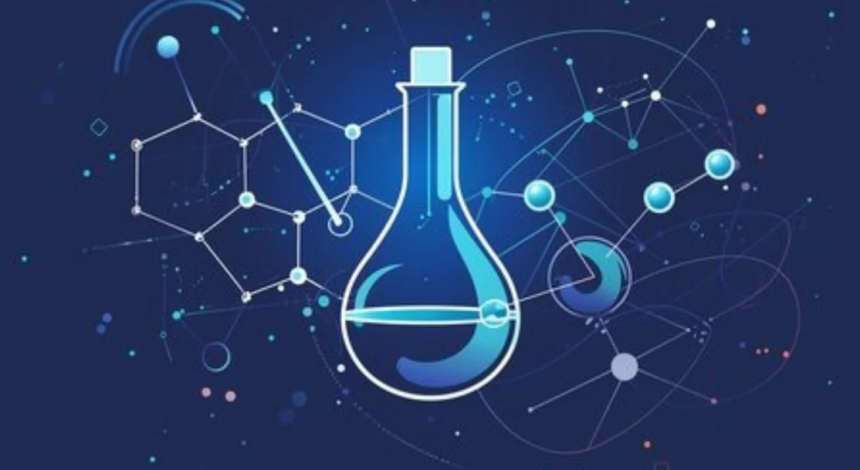In a world grappling with escalating health crises, food security concerns, and the undeniable impacts of climate change, one field stands poised to deliver revolutionary solutions: biotechnology. Far from being a niche scientific discipline, biotechnology is rapidly evolving into a cornerstone of human progress, leveraging the very building blocks of life to engineer a healthier, more sustainable, and prosperous future. Its influence, once largely confined to the lab, is now radiating outwards, promising to redefine industries and reshape our daily lives.
Nowhere is the transformative power of biotechnology more evident than in healthcare. We are on the cusp of an era where medicine will be truly personalized. Imagine treatments tailored not just to your condition, but to your unique genetic blueprint, ensuring maximum efficacy and minimal side effects. This vision is being realized through advancements like pharmacogenomics, where our DNA will guide drug prescriptions, and precision oncology, which targets cancer with unprecedented accuracy.
The revolutionary gene-editing tool, CRISPR-Cas9, continues to mature, offering tantalizing prospects for correcting the faulty genes responsible for inherited diseases like sickle cell anemia and cystic fibrosis, moving us closer to genuine cures rather than mere symptom management. Beyond genes, cell therapies and regenerative medicine are set to mend damaged tissues and organs, with breakthroughs in stem cell research and 3D bioprinting hinting at a future where functional organs could be custom-made for transplantation, easing the burden of organ shortages.
The rapid development of mRNA vaccines during the recent pandemic showcased biotechnology’s agility in combating infectious diseases, a blueprint for future rapid responses to global health threats. Furthermore, the integration of Artificial Intelligence (AI) is supercharging drug discovery, allowing scientists to analyze vast biological datasets, identify novel drug targets, and design molecules with a speed and precision previously unimaginable, drastically shortening the time from lab bench to patient bedside.
Beyond human health, biotechnology is fundamental to securing our food future. With a burgeoning global population, sustainable agriculture is paramount. Here, biotechnology offers solutions that are both productive and environmentally conscious. Genetically engineered (GE) and gene-edited crops are being developed with enhanced yields, fortified nutritional content (like Vitamin A-enriched “Golden Rice,” critically important in regions like India where nutrient deficiencies persist), and inherent resistance to pests, diseases, and harsh climatic conditions such as drought and salinity. This allows farmers to grow more food using fewer resources, reducing the reliance on chemical pesticides and fertilizers.
The rise of biofertilizers and biopesticides further underscores a shift towards greener farming practices, improving soil health and mitigating environmental pollution. Perhaps most intriguing is the burgeoning field of cellular agriculture, where meat, dairy, and other animal products are cultivated directly from cells in bioreactors. This promises a future of sustainable, ethical protein sources that dramatically reduce the environmental footprint associated with traditional livestock farming – a game-changer for global food systems.
The reach of biotechnology extends deep into industrial processes and environmental protection. The drive towards a greener economy is being fueled by biofuels derived from renewable sources like algae and waste biomass, offering cleaner energy alternatives. The development of bioplastics and biodegradable materials from biological sources is tackling the pervasive problem of plastic pollution, ushering in an era of circular economies.
In manufacturing, bio-based chemicals are replacing petrochemicals, using engineered microorganisms and enzymes to produce a vast array of compounds with greater efficiency and less waste. Environmentally, bioremediation harnesses the power of microorganisms to clean up contaminated soil and water, while novel biotechnological approaches are emerging for efficient carbon capture and utilization, transforming greenhouse gases into valuable products.
As India embraces its role as a burgeoning biotech powerhouse, driven by robust government support and a thriving startup ecosystem, the potential is immense. From pioneering drug discovery to revolutionizing agriculture with gene-editing technologies, India can solidify its place as a leader in biotechnology and contribute significantly to global sustainable development goals.
However, as with any powerful technology, the future of biotechnology is not without its ethical and societal considerations. Questions surrounding the responsible application of gene editing, the equitable access to life-saving innovations, data privacy in personalized medicine, and the broader environmental impacts of genetically modified organisms demand careful deliberation and robust regulatory frameworks. Open dialogue and public engagement will be crucial to navigate these complex ethical landscapes and ensure that biotechnology is developed and deployed responsibly, serving humanity’s best interests.
In conclusion, biotechnology is more than just a scientific frontier; it is a profound societal force. Its ongoing advancements promise to transform our understanding of life itself, offering unparalleled opportunities to solve some of the most pressing challenges facing our planet. By embracing innovation, fostering collaboration, and maintaining a vigilant ethical compass, we can unlock biotechnology’s full potential to build a future that is healthier, more sustainable, and truly revolutionary.
(Author is Assistant professor Chandigarh University)








